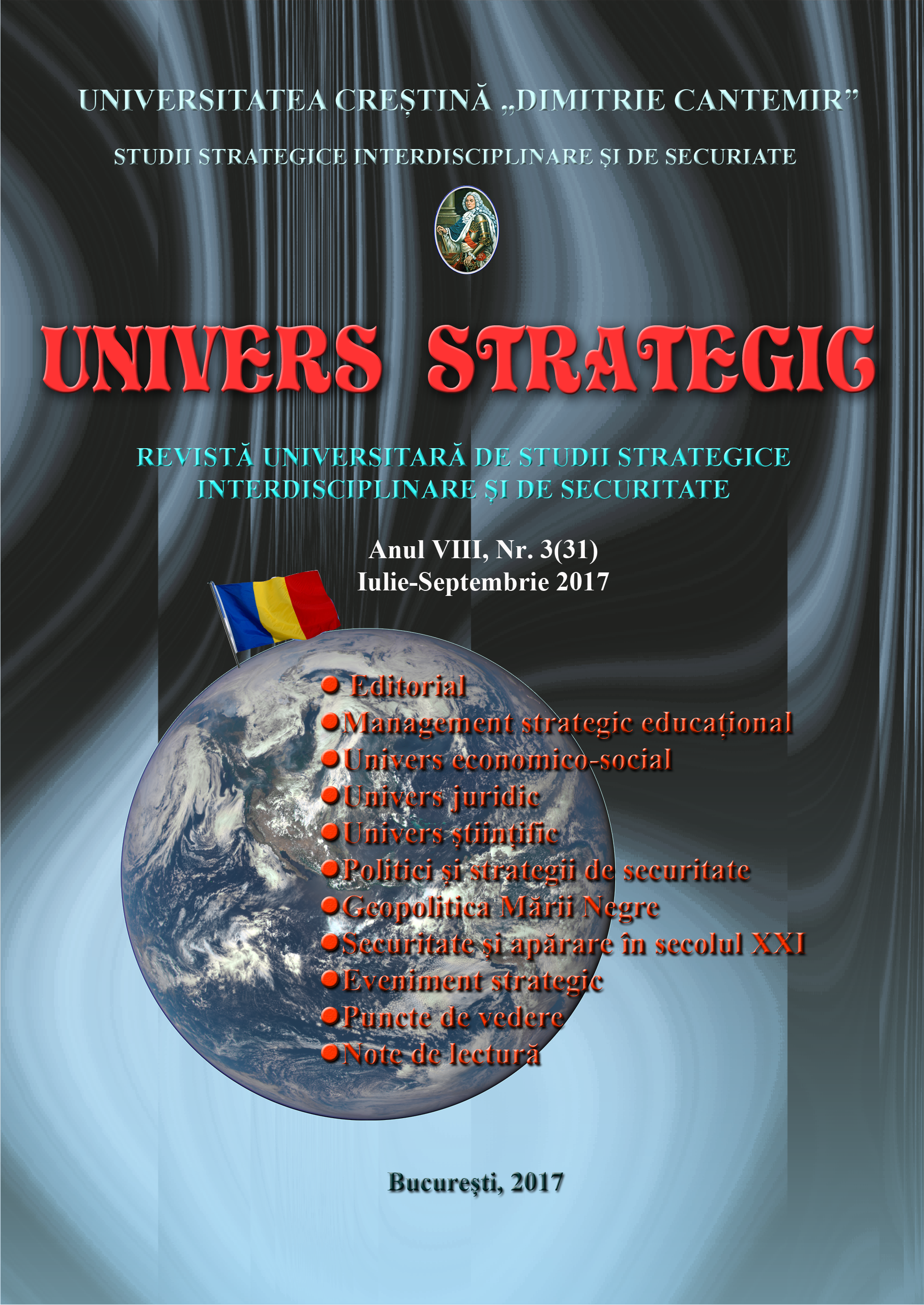O ARMATĂ PROPRIE UNIUNII EUROPENE ȘI PRIORITĂȚILE IMPERATIVE ALE SECURITĂȚII INTERNAȚIONALE ACTUALE
OWN ARRANGEMENT OF THE EUROPEAN UNION AND THE IMPERATIVE PRIORITIES OF THE INTERNATIONAL SECURITY
Author(s): Aristide CociubanSubject(s): Security and defense
Published by: Universitatea Crestina "Dimitrie Cantemir"
Keywords: European Union, NATO; US; EU’s own army; European Security Strategy; Joint Defense Strategy; NATO Strategic Concept; the President of France Emmanuel Macron; the Russian Federation;
Summary/Abstract: After the fall of the Iron Curtain, most of the European Union's (EU, Union) activities were dominated by the complex enlargement process through the integration of the European states that unleashed communism. The concept of the Union's own army was permanently on the agenda, with concrete initiatives being made, but they were entirely aimed at the field of foreign policy, being predominantly actions specific to the maintenance of peace, the implementation of peace, etc. in different conflict zones from the world. At the same time, it was considered that the EU would be strong, expanding and neglecting the aspect of its consolidation in relation to Euroscepticism. This and the fact that the EU affirmed its identity only in the economic field. It has strengthened, creating favorable conditions for expansion under NATO's security umbrella, which also benefited countries newly admitted to the Union by virtue of membership and the Alliance.But, along the way, engaging in international geopolitics, there have also been disputes with Russia on the issue of Ukraine. Against this background, in response to the increasingly serious threats from Moscow, EC President Jean Claude Juncker in March 2015 publicly relaunched the need for the Union's own army with structures parallel to NATO and not complementary to it, as it was normal. The return to the public debate of the Juncker variant, the issue of its own army is becoming very controversial and of great relevance, becoming more acute after Brexit, as a state of mind, has become a reality, fueling Euroscepticism.At the current time, the talks became more acute with the presidency of Donald Trump in the US, Emmanuel Macron in France, and Germany's post-belly foreign policy towards the US, less friendly and less publicly visible until its reunification. After reunification, this position of Germany became public, especially since Angela Merkel's Chancellery. To conclude, although the issue of the EU's own army, although much controversial, we still need to be widely debated in public, not to plead for the EU army, but to create and strengthen convictions that a united Europe becomes strong only integrated into the Euro-Atlantic values defined by strategic partnerships with NATO and the US. Life has demonstrated this truth. It should not be forgotten that the Western European economic integration that has been achieved so far has been possible only to shelter the US nuclear umbrella and the protection offered by Western Second World War troops (except USSR) France and Germany have thus relieved of national security. That was the only way to win the Cold War.
Journal: Revista Univers Strategic
- Issue Year: VIII/2017
- Issue No: 31
- Page Range: 160-180
- Page Count: 21
- Language: Romanian

